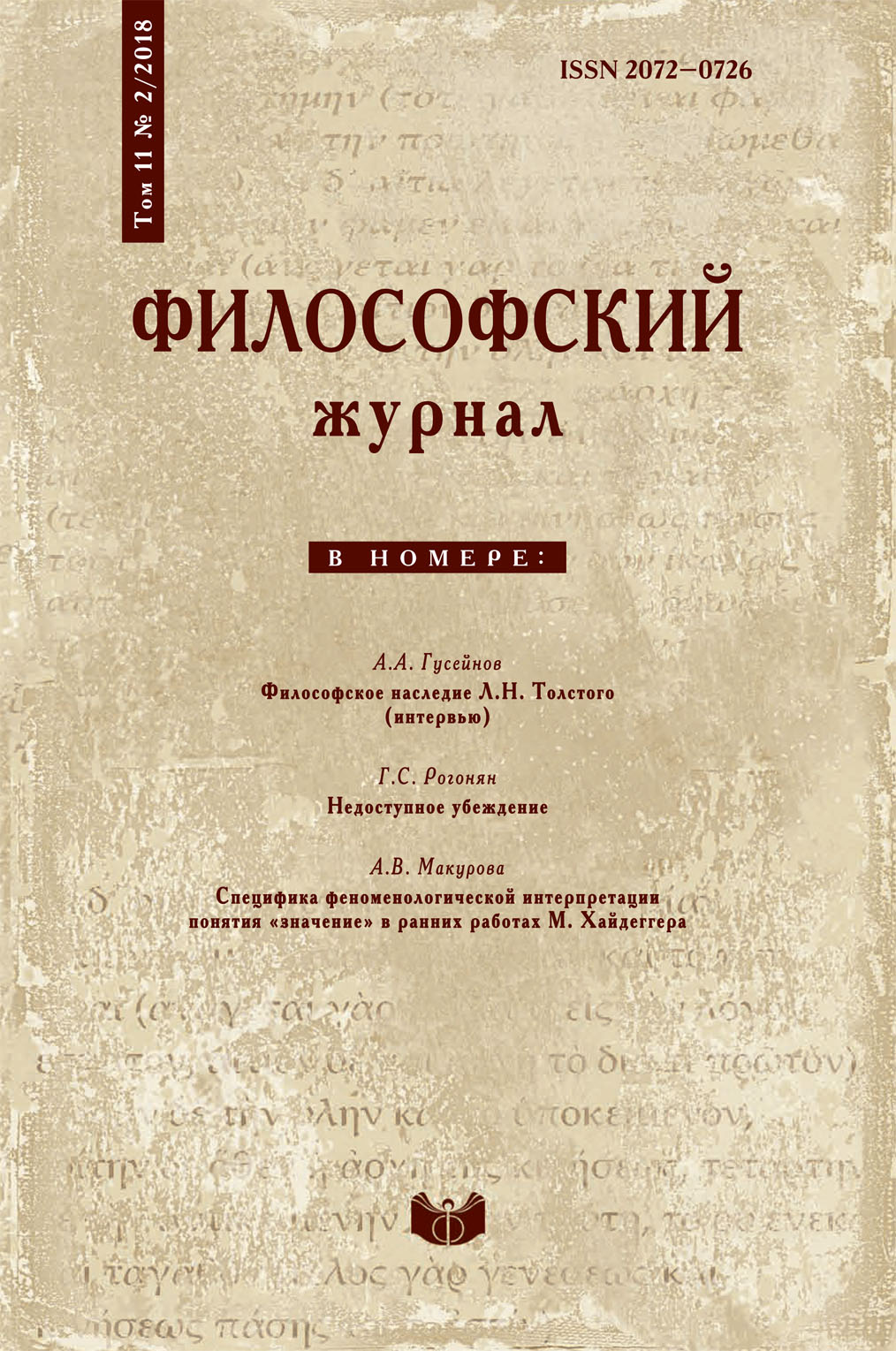A sketch of metaethics
DOI:
https://doi.org/10.21146/2072-0726-2018-11-2-167-186Keywords:
metaethics, ethics, moral metaphysics, moral psychology, moral epistemology, moral realism, moral naturalism, moral motivation, internalism, non-cognitivismAbstract
This paper briefly surveys the field of metaethics. Metaethics is a second-order philosophical discipline relative to normative ethics. It strives to answer descriptive questions about metaphysics, epistemology, psychology, and language of morality. The main metaphysical question concerns the very existence of “true”, i.e. more than just socially accepted, morals. Moral realists give a positive answer to this question. Realist moral metaphysics situates moral facts and properties against the natural world (naturalism, non-naturalism, supernaturalism), and at the same time relates them to mental facts and properties. Philosophical moral psychology connects moral properties and moral judgments to human action via motivating and normative reasons (various kinds of internalism and externalism). Moral epistemology asks how can someone have the knowledge of moral facts and properties (skepticism, intuitionism, empiricism). Finally, antirealists completely deny the existence of morality and seek to explain it as an illusion created by moral language (error theory and non-cognitivism). The problem arises when it turns out that plausible metaphysical theories often lead to unacceptable psychological, epistemological and semantic consequences, and vice versa. Moral naturalism and non-naturalism have little success in explaining the psychological significance of morals, meanwhile the former relies on an empiricist epistemology that poorly suites moral reasoning, whereas the latter implies intuitivist epistemology which today fares no better. On the other hand, internalist theories, which in themselves are much more convincing both from psychological and epistemological point of view, are bound to deny either the possibility of objective morals, or morals altogether.






